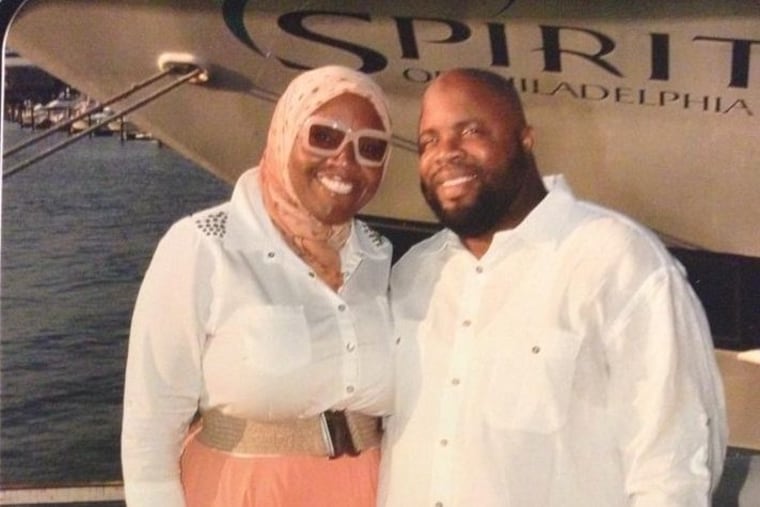Muslim woman upset after being told to remove scarf at gun range I Jenice Armstrong
Ryan and Farida Boyer had been looking something novel to do for their date night and decided to try a shooting range and ended up at Targetmaster in Chadds Ford.

Since when can't an Islamic woman wear a head covering while shooting a gun at a target range?
I'd never heard of such a thing.
Neither had Ryan and Farida Boyer of Overbrook Park. They had been looking for something to do for their date night and decided to try a new shooting range. They ended up at Targetmaster in Chadds Ford.
But shortly after they arrived last Friday, an employee told Farida she would have to remove her head covering, called a khimar. She was understandably taken aback.
"I said, 'I'm Muslim. I wear it for Islamic purposes," recalled Farida, a marriage and family therapist.
Farida had seen signs stating the rules regarding head coverings but did not think they applied to religious garb.
She tried explaining her situation to another employee, but again was told that her scarf would have to come off. She and her husband became upset and decided to leave. The couple drove to a restaurant, but fumed for the entire meal about the ugly turn their night out had taken.
"I was shocked, because I've been at a shooting range before and it never was a problem," she said.
Ryan, a business manager for a local union, went on Facebook and posted about the incident, telling his friends not to go to Targetmaster. "My wife and I went there to shoot and they denied her because of her khimar (Muslim head scarf)," he wrote.
I reached out to Aliyah Khabir, a communications consultant who's my go-to person for all things Islamic, and asked if she'd ever heard of such a thing. She told me she's been to target practice at the Philadelphia Training Academy in South Philly many times with her girlfriends, all in full Islamic dress, and had never encountered a problem.
"In the time that I've been a firearm enthusiast, I have never heard of a Muslim being turned away." she said.
I placed a call to Targetmaster, where a manager told me the store's ban had nothing to do with religion. In fact, there's a section on the range's website explaining its dress code, which forbids flip flops, tank tops, and any type of head wear except baseball caps.
"We do it for safety," Bob Bonnett told me. "When you shoot a gun, you have the brass casings that fly out of the gun. They can get caught in your clothing. They can get caught, you know, in anything you have on. They can burn your skin. We've had actual issues in the past. … This is something we've had in place for 25 years."
He added, "We don't want brass getting caught in any part of your clothing and burning your skin, because a lot of time the reaction is to not always put down the gun."
An inexperienced gun user, Bonner said, could accidentally shoot the weapon while reaching for a burned area.
"It's a safety issue," he said. "It's not a personal issue."
The policy appears to be isolated. I couldn't find anyone who'd run into a similar rule. A local gun shop owner from a different business, who asked not to be identified, said, "We have customers who wear Islamic head dress and we don't stop them."
The only time there is an issue is if they are wearing a face covering "and we ask them to remove it" so they can be identified against their picture ID, he said.
Rue Landau, executive director of the Philadelphia Commission on Human Relations, questioned the policy, saying, "It sounds concerning to me and that's because people have the right to wear religious garb, and places of public accommodation can't discriminate against people based on their religion."
She added, "If the place of public accommodation believes they have a legitimate reason not to serve someone or to require someone to remove religious attire, they have to prove that."
The Boyers have complained to the Philadelphia chapter of the Council of American-Islamic Relations, which advocates for the civil liberties of Muslims and is investigating. As CAIR attorney Timothy N. Welbeck said, "I find that claim [by Targetmaster] to be plausible but not particularly credible."
I'm inclined to agree.